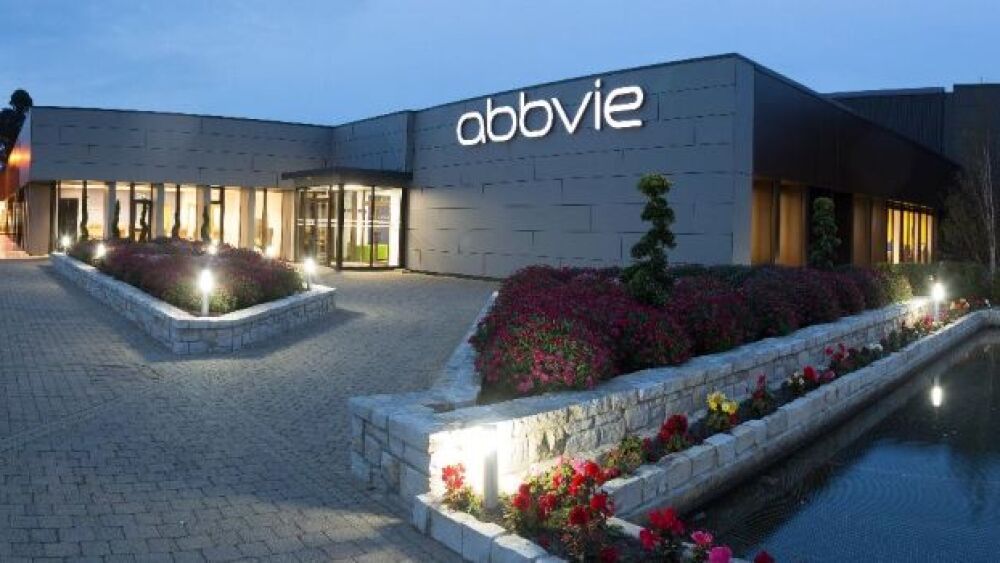Humira will begin to lose exclusivity in 2023, and numerous biosimilar competitors are waiting to break in on the drug’s lucrative market.
Courtesy of AbbVie Inc. All rights reserved.
AbbVie reported its fourth-quarter 2021 and full-year financial results on Wednesday, with worldwide net reviews up 7.4% to $14.886 billion for the quarter. Total revenues for the year were $56 billion.
As usual, the company’s Humira was the anchor product, with global net revenues of $5.334 billion for the quarter, an increase of 3.5% on a reported and operational basis. For the year, Humira brought in $20.694 billion in adjusted net revenues. Net revenues for the drug were $781 million international, a drop of 9.1% on a reported basis due to biosimilar competition. Humira will begin to lose exclusivity in 2023, and numerous biosimilar competitors are waiting to break in on the drug’s lucrative market.
For several years, investors and analysts have been looking to the company to provide some idea of what AbbVie might replace Humira with as the mega-blockbuster drug’s patents expire. And the answer seems to be not one, but two drugs, Skyrizi and Rinvoq.
At AbbVie’s fourth-quarter conference call, Chairman and CEO Rick Gonzalez, said, “Skyrizi and Rinvoq will be commercialized across all of Humira’s major indications — plus atopic dermatitis. We expect combined peak sales for Skyrizi and Rinvoq to exceed the peak revenues achieved by Humira.”
AbbVie EVP and Chief Commercial Officer Jeff Stewart noted in the conference call, “Overall, we continue to feel very good about the performance and progress we’re making with both Rinvoq and Skyrizi, which are expected to contribute more than $15 billion in combined risk-adjusted global sales in 2025.”
In terms of adjusted earnings, AbbVie reported full-year 2021 adjusted EPS of $12.70, a growth of more than 20% compared to 2020. Full-year adjusted net revenues passed $56 billion, an increase of 10.5% on a comparable operational basis.
Gonzalez said, “These results demonstrate balanced performance across each of our major growth franchises, including double-digit comparable operational revenue growth from immunology, aesthetics, and neuroscience. I’m extremely pleased with our momentum, and we’ve entered this year in a strong position, which is reflected in our guidance.”
Skyrizi and Rinvoq already raked in $4.6 billion in combined sales in 2021 and the company expects that growth to continue this year and beyond. It also expects to add new indications over the next couple of months.
Global net revenues from the hematologic oncology portfolio were $1.873 billion, up 4.6%; global net revenues for neuroscience were $1.654 billion, up 19%.
With Humira beginning to lose patent protection next year, AbbVie is predicting an “erosion curve” for the drug to be around 45%, plus or minus 10%, according to Gonzalez, and that’s in 2023 alone. He predicted further decline after that.
Of AbbVie’s oncology portfolio, Gonzalez said, “We’ve established a leading position with Imbruvica and Venclexta, which were both expected to remain important revenue contributors through the decade. To support our next wave of growth, we also have an exciting and diverse pipeline of promising new therapies to address critical unmet needs in both blood cancers and solid tumors.”
In neuroscience, AbbVie expects long-term growth in migraine, Parkinson’s disease and psychiatry. Gonzalez noted, “Ubrelvy and Qulipta are both demonstrating strong launch trajectories in migraine, with each treatment expected to contribute more than $1 billion in peak sales. Vraylar continues to have a significant opportunity with currently approved indications with peak sales expected to approach $4 billion.”
The company’s aesthetics portfolio, much of which it gained by acquiring Allergan in 2020 for $63 billion, “is performing well above expectations,” Gonzalez said, “delivering full year 2021 sales of more than $5.2 billion, $700 million higher than our initial guidance.”
Michael Severino, AbbVie’s vice chairman and president, focused on the company’s pipeline for 2022 and the future, noting label updates for Rinvoq in rheumatoid arthritis and FDA approval for the drug for psoriatic arthritis and atopic dermatitis.
“We expect an FDA approval decision next month for ulcerative colitis, in the second quarter for ankylosing spondylitis, and in the fourth quarter for non-radiographic axial SpA,” he said. “In Europe, we anticipate approval decisions for ulcerative colitis and non-radiographic axial SpA in the second half of the year.”
AbbVie is almost finished with the drug’s registrational program in Crohn’s disease, and recently announced positive topline data from the first Phase III Crohn’s induction study. It expects data from the second Phase III Crohn’s study and maintenance study in the first half of the year, with regulatory submissions in the second half of 2022.
Skyrizi also was approved for psoriatic arthritis and AbbVie expects it will, based on registrational trials, be “competitively positioned as an effective new treatment option for psoriatic arthritis patients.” Skyrizi is also being reviewed in Crohn’s in the U.S. and Europe with decisions expected in the first half and second half of the year, respectively.
Featured Jobs on BioSpace





